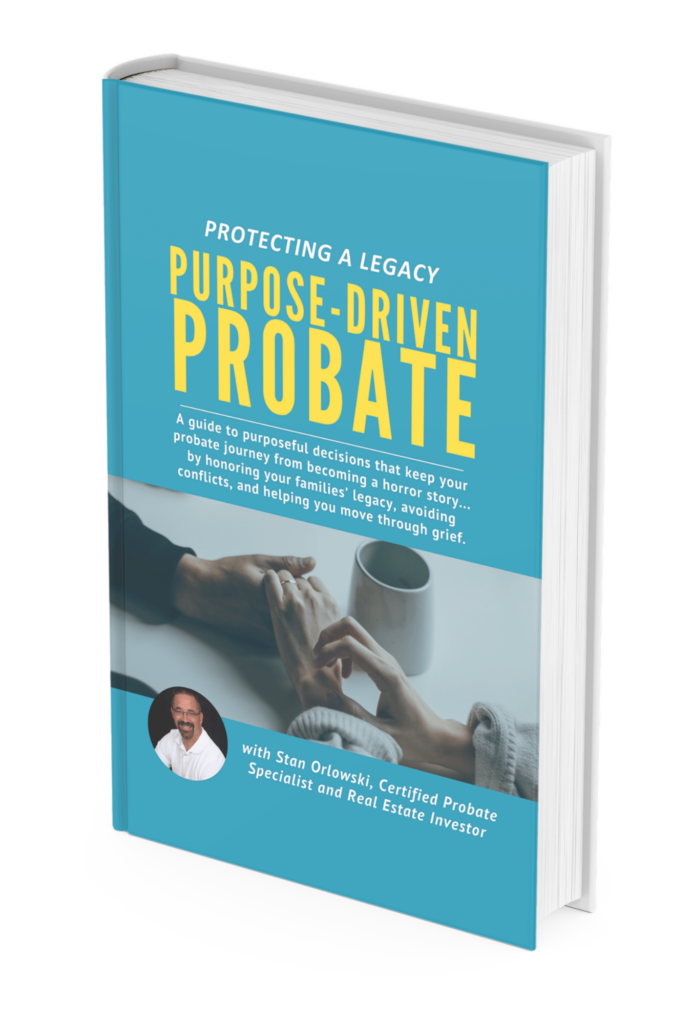

A guide to purposeful decisions that keep your probate journey from becoming a horror story... by honoring your families’ legacy, avoiding conflicts, and helping you move through grief.
 Hi, I’m Stan Orlowski, and I bought my first Spokane home in 1983. Since then, I have been working with families who need to escape difficult circumstances.
Hi, I’m Stan Orlowski, and I bought my first Spokane home in 1983. Since then, I have been working with families who need to escape difficult circumstances. 

While each attorney is different in their approach to probate cases, they generally limit their responsibilities to court matters exclusively. Communicating with family members, finding resources for estate issues, etc, are better suited for an experienced probate real estate agent.
Probate is a legal process that occurs after someone dies. It’s the way in which the deceased person’s debts and taxes are paid off, and their assets (anything they own) get distributed to their heirs (the people who inherit what they own).
Selling a house during probate can be complicated because the law requires that real estate not included in the decedent’s probate estate be transferred to the heir or heirs. This means that if you want to sell or refinance your home during probate, it may be necessary to establish a clear title – free and clear of any claims by the estate – before you can move forward with your plans.
This is often possible, but it requires careful planning. First, the heirs must read the deceased person’s will very carefully and determine what its terms are regarding taking possession of property before probate is complete. To avoid violating the spirit of the will or getting sued by other heirs, it would be advisable to consult an attorney before taking any action.
An ex parte sale is a judicial procedure that allows real estate to be transferred outside of probate without requiring court supervision after the sale. The law allows for an ex parte sale in certain circumstances when all heirs agree. Although it may be necessary to establish clear title with an ex parte sale, it does not require that all creditors of the estate be notified or that any creditor objections be heard by the court.